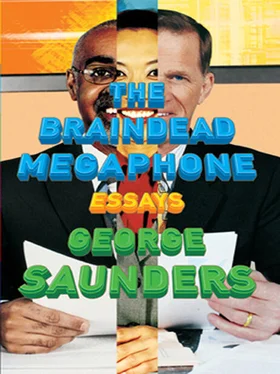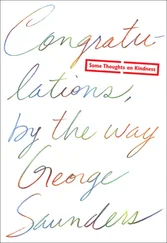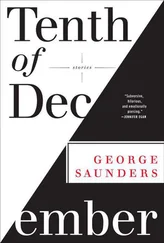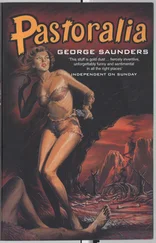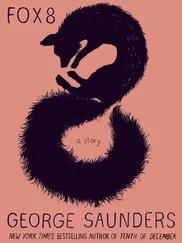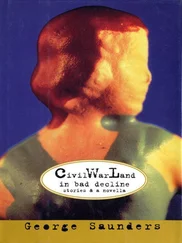The difference between Tom and Huck is that Huck believes in the reality of what he sees and feels, and Tom does not. Tom believes in what he has read in books, or, more correctly, in the concepts that have arisen from what he has read in books. Huck believes in the reality of the people and things he sees, whereas, to Tom, these things are only imperfect imitations of the people and things about which he has read. Because Huck believes that other people are real, he also believes in the reality of their suffering; he grieves when he hurts Jim, worries about the drunken rider at the circus, feels bad for betraying Miss Watson, and, most importantly, understands how much Jim needs his freedom. To Tom, Jim is not real, nor is Jim’s suffering; Jim’s suffering is simply an opportunity for Tom’s ego and cleverness to exert themselves. He prolongs and worsens this suffering by putting Jim through an insane ritual of escape à la those in Walter Scott novels (the low-comic riff that was Twain’s Apparent Narrative Rationale at that time) and by withholding from Jim the staggering truth: Jim has been free for most of the novel, because Miss Watson emancipated him on her deathbed.
Tom and Huck, of course, correspond to different parts of their creator. Tom, perhaps, to that part of Twain that longed for acceptance from the Snooty East, and Superior Europe, and distrusted the Huck part — so crude, wild, backwoodsy, and unschooled. Literary characters can come only from their creator’s psyche, but in this case — maybe because Twain’s psyche was such a specimen psyche, and because he had such unfettered access to it — his personal binary was also a critical national one: Huck and Tom represent two viable models of the American Character. They exist side by side in every American and every American action. America is, and always has been, undecided about whether it will be the United States of Tom or the United States of Huck. The United States of Tom looks at misery and says: Hey, I didn’t do it. It looks at inequity and says: All my life I have busted my butt to get where I am, so don’t come crying to me. Tom likes kings, codified nobility, unquestioned privilege. Huck likes people, fair play, spreading the truck around. Whereas Tom knows, Huck wonders. Whereas Huck hopes, Tom presumes. Whereas Huck cares, Tom denies. These two parts of the American Psyche have been at war since the beginning of the nation, and come to think of it, these two parts of the World Psyche have been at war since the beginning of the world, and the hope of the nation and of the world is to embrace the Huck part and send the Tom part back up the river, where it belongs.
But this is not what happens in Huck Finn.
Instead, Huck-Growing becomes Huck-Stultified. His clarity and moral resolve fade and he becomes, if anything, more of a passive Sawyer-lackey than he was at the beginning of the book. Jim falls off the shelf of the human entirely. He allows himself to be bitten by rats, writes notes on the wall in his own blood, does not escape though there is a clear route of escape, participates in Tom’s idiotic rituals without a word of objection. Convinced of the holiness of Huck’s mission, we are forced to watch that mission reduced to a sickening vaudeville sketch.
“Having only half-escaped the genteel tradition, one of whose preeminent characteristics was an optimism undaunted by disheartening truth,” Santayana wrote, “[Twain] returned to it.”
LET’S BURN IT, THEN BAN IT, THEN BURN IT AGAIN
Even before its publication, Huck Finn was at the center of a controversy involving one of its illustrations, which had been changed by an ornery typographer who put a certain part of Uncle Silas’s anatomy outside his pants rather than inside them, and made it look something like an angry duck. Original objections to the book itself centered around the issue of its crudeness. The book was a shocking portrayal of a white-trash boy who smoked, snuck out windows barefoot, sat around naked on a raft, smoked some more, told a bunch of lies, then openly expressed a desire to go to hell. Over the years, as the much-feared epidemic of young boys sneaking out of windows barefoot while smoking and wishing to go to hell never materialized, the crudity objection faded, replaced by another: the book and its author were racist. Or maybe just the book was racist. Or maybe the author was partly racist, which infected the book, which basically had its heart in the right place.
In “Mark Twain and His Times,” Arthur G. Pettit paints a picture of Twain as a man who started out life a natural, enculturated racist and gradually grew out of it, or as out of it as his time and culture permitted. Twain was the son of a slav owner, in a town of slave owners. As a boy he saw his father administer beatings and floggings and once saw a fellow townsman crush a slave’s head with an iron bar. Near the real-life model for Huck Finn ’s Jackson Island, young Clemens found the disemboweled body of a murdered slave, and at fourteen he witnessed the lynching of a black man accused of raping a white woman. Before and during the time of the Civil War, according to Pettit, Twain “ranted against ‘niggers’ and told a long series of popular jokes about ‘nigger odor,’ fried ‘nigger’ steaks, black sexual promiscuity, and the evils of miscegenation.” But by the 1880s Twain had changed; he made impassioned speeches against race brutality, paid the Yale tuition of several black students, became friends with Frederick Douglass and Booker T. Washington. In short, his natural clearheadedness asserted itself on the issue of racial equality, and it was out of this spirit that Huck Finn came.
But given Twain’s roots, it would be surprising if the book’s representation of blacks didn’t bear some evidence of its author’s journey. And it does. There are moments, even before the ending, when the “real” Jim — that is, the Jim we perceive through, or in spite of, Huck’s foreshortened first-person presentation of him — is not fully human but a minstrelish caricature, moments when we sense that somewhere in the back of Twain’s mind, some swaggering remnant of the Hannibal kid is cranking out stereotypical comic images of blacks for cheap laughs, images that Twain the Reformed is failing to fully reject. It is wholly appropriate that Jim be a believable slave, subject to all the restrictions, educational and otherwise, that that word implies, but there is no need for him to be an idiot. And there are places in the book where Jim is presented as simpleminded, almost retarded, and these places are in stark contrast to other places where we see him as an intelligent, kind, wary, adult runaway, doing his best to balance his natural goodness against his fear of recapture, his justifiable suspicion of Huck against his real affection for the boy.
The questions about race in Huck Finn tend to center around the presence in the book of the word “nigger,” but my guess is that, if the book were free of the types of missteps described above, and if the ending weren’t such a fiasco, that word might not be such a problem. That is, if our wishful dream of the book (in which Jim is always fully human and three-dimensional, and in which Huck steadily and then definitively comes to understand this) had been perfectly realized, I think most readers would tolerate the n -word as an important and even essential indicator of character. It is crucial that we understand Huck as a possible nascent racist, and so he had better talk like one. Imagine a story about the possible salvation of a young misogynist, son of a radical woman-hater; the story is nonsense if that budding misogynist and his creepy father speak of women only in the purest and most enlightened terms.
Having said that, I will also say that a writer who uses the n -word (which even in Twain’s day was understood to be derogatory) walks a fine moral line. He or she can do one of three things with the n -word (or other ethnic slurs, or gender pejoratives): (1) use it less than it would “actually” be used, that is, omit or decrease its use by people who might reasonably be expected, by virtue of their class or education or stupidity, to use it; (2) use it exactly as much as it “should” be used, that is, use it whenever it seems that a given character would indeed use it, and when its use is thematically essential; or (3) use it more than it would actually be used, that is, use it gratuitously, swaggeringly. Which was Twain doing? Was Twain swaggering? Do we detect any swaggering? If so, is this possible apparent swaggering only an accurate imitation of the actual ambient swaggering of his boyhood Hannibal? At this point in the argument, one starts to get a nauseated, bean-countery feeling: Can we ever really know to what extent this man or his book was, or is, racist? When we identify racism in the book, aren’t we really just identifying racism in the culture out of which it came? Is it fair to expect Twain to have vaulted himself out of his own time and place and arrive, clean-booted and upright, in our own? Isn’t the book still funny and deep? Aren’t I actually enjoying it? How does one do the complicated math of Ultimate Racism: If we determine that, relative to our time, Twain was a 40 percent racist, while relative to his own, he was only a 12 percent racist, or was in fact a 0 percent racist — what do we know, really?
Читать дальше
